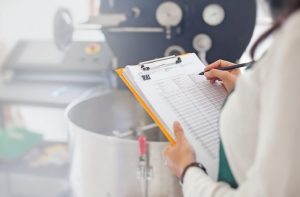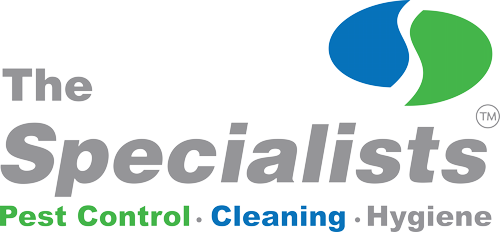 Food is a fundamental part of our daily lives, but do you ever stop to think about the potential risks associated with what you eat? The World Health Organization (WHO) estimates that approximately 1 in 10 people will fall ill each year due to consuming contaminated food, with diarrheal diseases topping the list as the most common ailment. This alarming statistic underscores the critical need for food businesses to prioritise food safety, as the journey from farm to fork is riddled with challenges that can make food vulnerable to contamination and other hazards.
Food is a fundamental part of our daily lives, but do you ever stop to think about the potential risks associated with what you eat? The World Health Organization (WHO) estimates that approximately 1 in 10 people will fall ill each year due to consuming contaminated food, with diarrheal diseases topping the list as the most common ailment. This alarming statistic underscores the critical need for food businesses to prioritise food safety, as the journey from farm to fork is riddled with challenges that can make food vulnerable to contamination and other hazards.
In this blog post, we’ll explore the various ways food can become contaminated and discuss essential food safety strategies that food businesses must implement to protect their brand and, more importantly, the health and safety of consumers.
How Does Food Get Contaminated?
Food contamination can occur at any stage in the food supply chain, from production and processing to distribution and preparation. There are several potential sources of contamination, including pests, inadequate sanitation and hygiene practices, improper storage, and even unsafe cooking habits. Regardless of the source, it’s crucial to establish effective sanitation and maintenance strategies to prevent the consequences of contamination, such as product recalls, negative publicity, and most importantly, harm to consumers.
Food Safety Strategies
To ensure food safety, food businesses must take a proactive approach by implementing stringent food safety systems and adhering to quality standards. Here are some strategies to safeguard your business and the well-being of your customers:
-
Understand and Adhere to Regulations
Familiarise yourself with critical food safety principles, such as Hazard Analysis and Critical Control Points (HACCP) and other regulatory approaches. These guidelines are designed to prevent cross-contamination and ensure the safety of food products. Additionally, it’s essential to educate and train your staff about their role in maintaining food safety standards.
-
Make a Business Case for Sanitation and Pest Management
Maintaining a clean and pest-free environment should be a top priority for food businesses. Consider involving managers in periodic inspections to identify potential risks and partner with certified service providers to implement proactive protection measures where they matter most. This proactive approach will help prevent costly and reputation-damaging incidents.
-
Encourage Excellent Hand Hygiene
Proper handwashing is a fundamental practice in preventing contamination by food handlers. It’s not enough to just instruct your staff on proper handwashing techniques; you must also provide them with the necessary facilities to promote regular hand hygiene. Ensure that readily available hand soap dispensers, paper dispensers, hand sanitiser stations, and waste removal bins are easily accessible in your facility.
Food safety is a shared responsibility that spans from food producers to consumers. Food businesses play a pivotal role in this chain by minimising exposure to foodborne pathogens and ensuring the health and safety of the general population. By understanding the sources of contamination and implementing rigorous food safety strategies, you can protect your brand, maintain consumer trust, and contribute to a safer, healthier world.
Remember, partnering with specialists in food safety and compliance is a wise investment to keep your business safe, healthy, and in compliance with industry regulations. Contact us today to take the next step in safeguarding your business and consumers alike.

